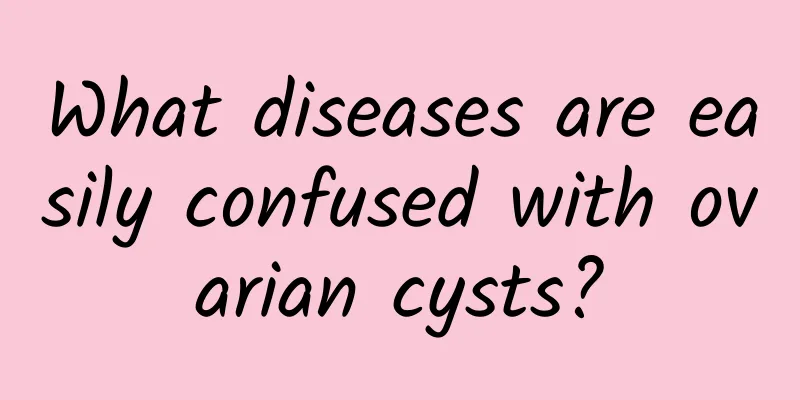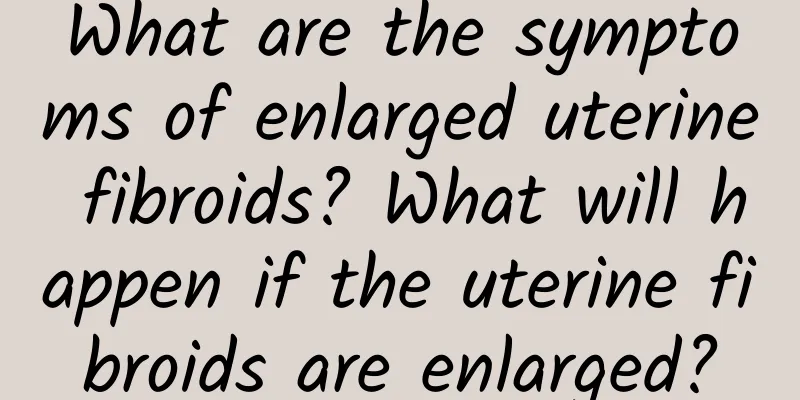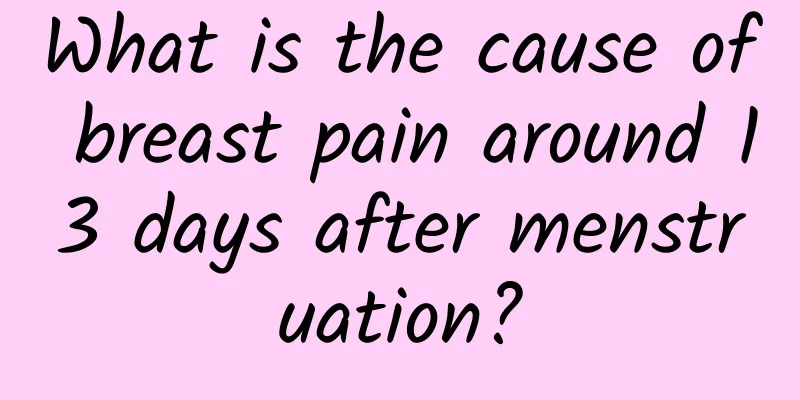What diseases are easily confused with ovarian cysts?

|
Gynecological diseases are very complicated and there are many types. Sometimes one disease can lead to many other diseases. Ovarian cysts are one of the more troublesome ones, and they can also be confused with other diseases. Therefore, if you want to diagnose ovarian cysts, you must first rule out similar diseases. Gynecologists have listed the following symptoms that are easily confused based on their experience in diagnosing ovarian cysts: 1. Ovarian tumor-like lesions: Follicular cysts and corpus luteum cysts are the most common. They are usually unilateral, less than 5 cm in diameter, with thin walls, and disappear on their own within 2 months. 2. Fallopian tube and ovarian cysts: They are inflammatory cysts, often with a history of infertility or pelvic infection. Cystic masses form in the adnexal areas on both sides, with clear or unclear boundaries and limited movement. 3. Uterine fibroids: Subserosal fibroids or cystic changes of fibroids can be easily confused with ovarian solid tumors or cysts. Fibroids are often multiple, connected to the uterus, and accompanied by menstrual abnormalities such as menorrhagia. During examination, the tumor moves with the uterine body and cervix. 4. Pregnant uterus: In early pregnancy, the uterine body and cervix seem to be disconnected during triple examination, and the soft uterine body is easily mistaken for an ovarian tumor. However, if the pregnant woman has a history of amenorrhea, it can be identified by detailed medical history, HCG measurement or B-ultrasound examination. 5. Ascites: Large amounts of ascites should be differentiated from giant ovarian cysts. Ascites often occurs in patients with a history of liver disease or heart disease. When lying flat, the two sides of the abdomen bulge like a frog's belly. Percussion produces a tympanic sound in the middle of the abdomen, solid sounds on both sides, and positive shifting dullness. When lying flat, patients with giant cysts have a bulge in the middle of the abdomen, dull sounds on percussion, tympanic sounds on both sides of the abdomen, and negative shifting dullness. The boundaries of the lower abdominal mass are clear, and B-type ultrasound examination can be used for differentiation. The first step to cure a disease is to find the root cause. If the diagnosis of the disease is wrong, it is impossible to cure the disease. Many patients with ovarian cysts delay their treatment for this reason. Therefore, I hope that the majority of female comrades will pay more attention to the above content, so as to do a good job in the diagnosis of ovarian cysts and promote the smooth progress of treatment. Special topic on ovarian cysts: http://www..com.cn/fuke/ncnn/ |
<<: A brief discussion on the indications of uterine fibroid surgery
>>: Understand the main hazards of cervical erosion
Recommend
London Olympic athletes eat 2.7 million bananas to supplement calories and prevent cramps
The London Olympics has just ended. According to ...
What are the painkillers for dysmenorrhea?
Dysmenorrhea is a common problem for many female ...
How to regulate women's premature menopause
45-50 years old is a common age for women to expe...
How many courses of treatment are needed for cervicitis
The course of treatment for cervicitis varies fro...
Warning: Unmarried women can also get pelvic inflammatory disease
Many unmarried women do not care about pelvic inf...
Describe in detail the main symptoms of cervical erosion
Speaking of cervical erosion, I believe everyone ...
What is artificial abortion syndrome and what are the precautions after artificial abortion?
Artificial abortion syndrome mainly refers to a s...
Precautions for women after abortion
Pregnancy is a happy thing for every woman, howev...
The best "menopause period" for women has been announced, reminding you: the closer you are to this age group, the healthier you are.
Dear ladies, have you ever quietly stared at your...
What is Ⅱ degree cervical erosion? Medical explanation of Ⅱ degree cervical erosion
Grade II cervical erosion indicates that the area...
Is myomectomy really useful? Who are the suitable people for myomectomy?
Among the many methods of treating uterine fibroi...
What are the symptoms of ovarian chocolate cyst?
What are the symptoms of ovarian chocolate cysts?...
Wang Zhengteng: The avian influenza epidemic is sporadic
In response to documentary director Lee Hui-ren&#...
How to prevent dysmenorrhea in life
Dysmenorrhea has always plagued some women. Every...
How is the thickness of the endometrium formed?
Endometrial hyperplasia can occur at any age, dur...









